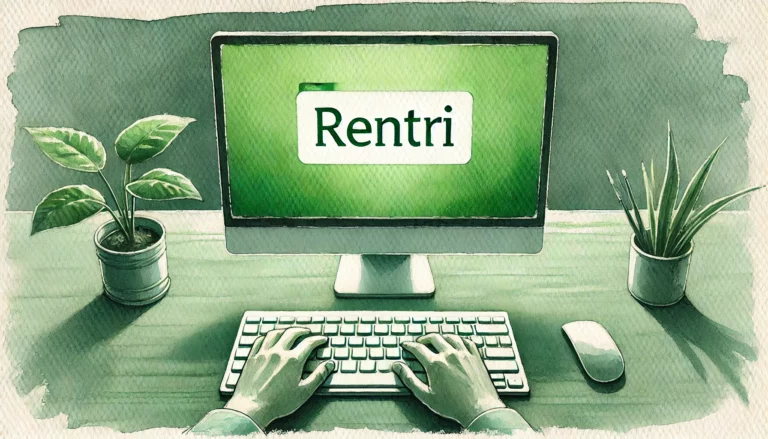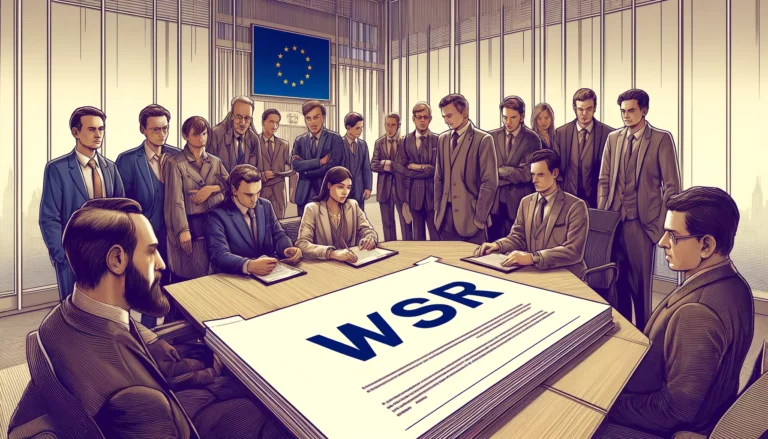5 waste management mistakes that could cost your business a fortune

Many entrepreneurs reduce waste management to a simple task: hire a company, sign a contract, forget it. However, beneath the surface of this routine lurks a number of hidden problems. These, in turn, can cost a company much more than it realises - financially, legally and even in terms of image. In this article, we show why waste requires more than ad hoc measures. Why choosing the right partner is an investment in peace of mind, compliance and real savings.
Costs you can't see: how waste is slowly draining the corporate budget
Although waste is often seen as a necessary cost of business, its real impact on a company's budget is much deeper than it might seem. Many businesses do not realise that inefficient waste management leads to quiet but systematic financial losses. Situations such as excess containers, excessive collections and even unnecessary waste storage are becoming the standard rather than the exception.
Added to this is the lost potential for secondary use of raw materials that could be sold or processed locally. The result? The company pays twice - once to dispose of the waste and a second time to purchase new material. A partner who is able to look at the waste stream holistically is able to identify these non-obvious loss points and propose specific changes that quickly translate into real savings.
Where does your waste really go? Recycling that only pretends to recycle
Many entrepreneurs live in the belief that signing a contract with a waste collection company concludes the topic. Unfortunately, the reality is more complex. Without confirmation of what happens to the waste after it leaves the facility, the company risks being complicit in an illegal practice. For example, waste may end up in a warehouse that merely changes its formal address, with no real processing.
An even worse scenario is illegal exportwhere waste lands outside the EU, often in conditions that endanger people and the environment. The consequences of such a situation hit not only the company's wallet, but also its image. It can then be accused of greenwashing, i.e. the practice of misleading the public about the environmental performance of its activities or services. As a result, its certifications or reputation are at risk. A reliable partner not only verifies the end of the processing chain. It also ensures transparency and compliance with the waste hierarchy, giving the company real control over the waste right to the end.
Waste analysis: data that reveals a company's waste management problems
Every kilo of waste generates not only a cost, but also information about the health of the company. Waste analysis can reveal hidden production problems, technological inadequacies or wastage of raw materials. For example, a sudden increase in a particular type of waste may indicate a process line failure, procurement errors or wrong operational decisions.
Meanwhile, many companies treat waste solely as a burden without analysing its structure and variability. A professional waste partner sees the information potential in waste. It creates analyses, identifies trends and helps make decisions not only on waste management, but also on optimising company processes. This is an advantage that cannot be overestimated in an age of struggle for efficiency and minimising waste.
Diffuse responsibility: when the waste chain breaks
The more hands along the way, the greater the risk of errors, misunderstandings and unclear procedures. Today's waste services market is full of subcontractors, brokers, hauliers and warehousemen, each responsible for only a part of the process. The result? Lack of consistent oversight, diluted accountability and difficulties in reporting data.
Such a model of operation can be costly and dangerous, especially when one company fails or provides incorrect data. The right partner not only knows all the players in the market, but can integrate them into a unified management system. He creates a process where the customer receives one report, one invoice and one responsible contact person. This simplification not only saves time, but significantly improves operational security.
These waste documentation errors could cost you a fortune
Waste management regulations are complex and violations - even unintentional - can lead to serious consequences. All it takes is a minor mistake in the classification of waste, the absence of one entry in BDO or inadequate records. As a result, the company may expose itself to an audit, a fine or even criminal liability. Sometimes the problem only emerges years later when the office does a retrospective analysis of the records.
Working with an experienced adviser means not only assistance with day-to-day duties. It also means active monitoring of legal changes, employee training and internal audits. A waste management partner who knows the realities of the market and the law protects the company from mistakes whose consequences may be disproportionate to their original severity.
Before it's too late: the cost of inaction in waste management
Failure to respond to hidden waste management problems is a real cost to the company:
- Missed opportunity for savings - failure to optimise waste management means endless, unnecessary expenditure.
- Penalties for inaccurate documentation - risk of fines due to illegal classification or errors in reports.
- Blocked cross-border shipments - formal inconsistencies can stop shipments and disrupt operations.
- Loss of contracts - failure to meet recycling targets results in the company losing the trust of partners.
- Additional last-minute costs - if waste is rejected, you have to organise emergency pick-upwhich generates high fees.
Giving up on action puts your business at real risk - but this risk can be minimised with the knowledge and experience of a professional partner.
Need help with waste management? Contact with us
Quick test: is your company experiencing waste management problems?
Even if you have a signed contract with a waste collector, it does not yet mean that everything is working according to the regulations. Many companies unwittingly make costly mistakes - from incorrect classification, to gaps in documentation, to a lack of control over the subsequent fate of the waste.
This short test will help you diagnose whether your company is really in control of its waste management - or whether you only think you are. Test yourself and find out what else is worth improving.
RESPONSIBLE WASTE MANAGEMENT TEST
Correct answers:
1d, 2b, 3a, 4a, 5a, 6c, 7c, 8b






